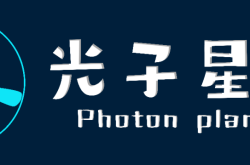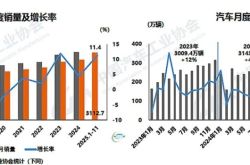Tencent plans to acquire Ubisoft: How difficult is it to make a "3A" game?
![]() 10/12 2024
10/12 2024
![]() 620
620
From developers, players to game media, no one can accurately describe what "3A" is in the gaming field, and no one even knows who first used this term.
The most common definition of "3A" usually refers to: A lot of money, A lot of resources, A lot of time. It often represents top-tier production quality, technological achievements, and significant influence in the industry.
In other words, "3A" is not an objective standard for reference, but rather a subjective judgment based on experience in most cases.
Tencent plans to acquire Ubisoft
During the National Day holiday, Bloomberg reported that Tencent and the Guillemot family, founders of Ubisoft (UBSFY.US), planned to jointly privatize Ubisoft.
Although this acquisition intention cannot match the impact of Microsoft's acquisition of Activision Blizzard, it remains a hot topic in the global gaming industry.
Founded in 1986, Ubisoft has 23 game development studios worldwide and owns renowned IPs such as "Rayman," "Assassin's Creed," "Far Cry," "Prince of Persia," "Splinter Cell," "Rainbow Six," "Watch Dogs," "Tom Clancy's The Division," and "Tom Clancy's Ghost Recon."
On October 7, Ubisoft's announcement sparked further speculation. Ubisoft stated that it had noticed recent media speculation about potential benefits and would regularly review all strategic options for the benefit of stakeholders and inform the market at the appropriate time.
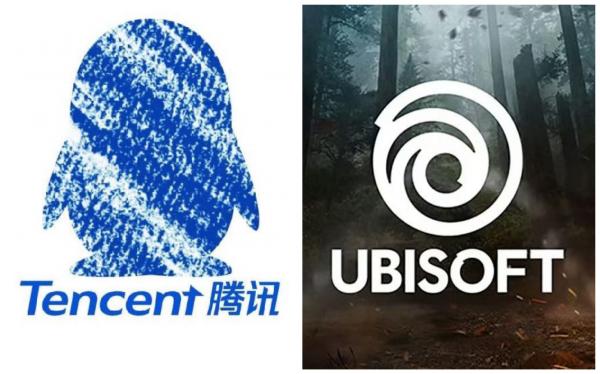
There are two main reasons why people believe this acquisition will succeed: First, Tencent has continuously increased its investment in Ubisoft over the years, becoming its second-largest shareholder and largest external shareholder, making further progress logical. Second, Ubisoft's operating performance and core IPs have suffered setbacks in the gaming industry, making it logical for them to seek a strong partner.
The success of "Black Myth: Wukong" has brought some indirect pressure on Ubisoft. Forbes valued Game Science, the developer of "Black Myth: Wukong," at $1.8 billion, while Ubisoft, with nearly 40 years of history, saw its market value fall below $2 billion after years of declining performance. Strategic change is urgent for Ubisoft.
Tencent's acquisition intention of Ubisoft is also interpreted as a significant move in Tencent's AAA game development. Recently, Tencent Group Senior Vice President Ma Xiaoyi said that the success of "Black Myth: Wukong" inspired Tencent's management, emphasizing the need for unity, determination, and significant time investment to create high-quality products.
So, what exactly does "significant time investment" mean?
Understanding the "3A" Concept
Many consider "Black Myth: Wukong" to be China's first commercially successful "3A" game, akin to the first university graduate in a village.
But what exactly is "3A"?
From developers, players to game media, no one can accurately describe what "3A" is in the gaming field, and no one knows who first used this term.
The most common definition of "3A" usually refers to: A lot of money, A lot of resources, A lot of time. It often represents top-tier production quality, technological achievements, and significant influence in the industry.
In other words, "3A" is not an objective standard for reference but rather a subjective judgment based on experience in most cases.
"3A" is often strongly associated with the "Premium" model, where games are paid for as a one-time commodity rather than through continuous content subscriptions to qualify as a "3A" game.
Games with high production and marketing costs and industry-leading quality are labeled as 3A, while lesser games are classified as 2A. Some developers even market their games as "4A," while service-based games are not subject to this classification, regardless of their overall costs.
This means that "having money" is not the decisive factor in making a 3A game; it is merely a threshold. Only when all available funds and resources are fully reflected in game quality will it be recognized as a 3A game by the market and pushed by media and players into the competition for "Game of the Year."
"Game of the Year" typically refers to the award given by The Game Awards (TGA), the gaming equivalent of the Oscars. Although criticized as a " Rooster Award " for not accurately reflecting players' preferences, winning TGA's "Game of the Year" still represents global player preferences.
Hence, Ma Xiaoyi said that "Black Myth: Wukong" should aim for TGA's "Game of the Year" this year, "I think they deserve it."
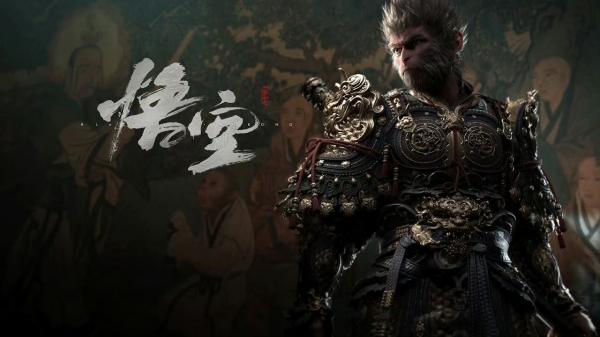
However, honor does not necessarily translate to sustained commercial value. Awards and media scores may influence potential buyers before release, but post-release sales are the closest assessment of commercial value.
From "Entry" to "Obsolescence"?
Imagine you're a game developer who has formed a studio team and wants to create a game based on your vision and bring it to market through official channels. This journey typically involves:
In the project initiation phase, you first create a virtual world, establishing the main worldview and storyline. Strong narrative games also require solid scripts. Next, you design the core gameplay, and the technical team starts coding based on this design. Continuous refinement and testing follow, with internal testing and patching. After a lengthy development cycle, the "final product" is submitted for approval by local authorities.
Local authorities have numerous projects to approve, often resulting in long queues. If the game contains prohibited content, modifications are required. After passing local inspections, the game is submitted to the central authority, which faces an even longer queue and may require further modifications based on different standards. Once fully approved and with an active license, the game is ready for distribution.
By this time, a considerable period has passed since initial submission, increasing the risk of gameplay and settings becoming outdated. Content modifications to comply with regulations may also alter the original vision. Nevertheless, with significant upfront costs, the game must be launched to recoup investments.
To increase exposure and downloads, the game requires channel promotion, necessitating a publisher. A seasoned publisher can assist with media outreach, reviews, livestreams, video production, topic creation, community management, and, crucially, provide funding for game rights, allowing developers to recoup some costs.
For mobile games, developers must share 30%-50% of revenue with app stores and distribution channels. The cumulative burden of upfront development, mid-stage approvals, and post-release marketing can be overwhelming. With family obligations, employee salaries, and investor returns to consider, game strategies often shift from "delighting players" to "monetizing players."
To avoid lengthy approval processes and uncertain licensing policies, international expansion may seem appealing. However, deciding between tailoring strategies for different international markets or replicating domestic monetization models abroad is not straightforward. The former entails higher development costs, while the latter's "one-size-fits-all" approach may no longer suffice.
To quickly bring a game to market, some developers opt for foreign distribution platforms, creating small but rapid "indie games" with a strong original style. Platforms like Steam, Epic, and console stores provide exposure and promotion but require revenue sharing. Still, revenue sharing is ubiquitous in the industry.
After launch, your confidence in your team's game is rewarded with market response. Positive reviews, soaring sales, and widespread media coverage make you feel on top of the world, dreaming of TGA's "Game of the Year" award. The excitement keeps you awake at night, filled with visions of player praise.
The next morning, a disheartened colleague informs you that despite encryption, hackers have cracked the game's source files, and pirated versions are circulating online. Piracy severely impacts sales, and rumors suggest even top internet companies are selling pirated copies. Your blood pressure rises as sales plummet, and you faint.
Faced with investor skepticism and employee pressures, you lack the courage to embark on a new game development project soon. With so many obstacles in self-development and publishing, you consider transitioning from the front stage to the backstage, becoming a game outsourcing company instead of an independent developer.
"Ghost Developers"
To navigate this business shift, you conduct market research and discover that many internationally renowned game outsourcing companies began as publishers before specializing in outsourcing, aligning with your path.
The primary consideration is that as a game outsourcing company, you essentially lose the spotlight. Your team's name may only appear in the credits of completed games, unless the client specifically requests otherwise or restricts public discussion of your involvement.
Founded in 1979 and headquartered in Kyoto, Japan, Tose employs over 1,000 people globally, with branches in Hangzhou, China, and the Philippines. It participates in the outsourcing of dozens of games annually. Tose's motto is "We are always behind the scenes," and it does not disclose team names unless required by clients.
As a service provider, this positioning can be awkward. New clients want to know a company's past projects and industry partners, but proof can be challenging for many outsourcing firms.
Tose invites curious clients to its Japanese headquarters for a game library tour (no photos allowed). Due to confidentiality agreements, Tose staff cannot provide detailed explanations, leaving clients to explore the company's history and capabilities on their own.
Compared to Tose, another outsourcing giant, Keywords Studios, is much better known and frequently featured in acquisition deals. Founded in 1998, Keywords Studios has grown into a supergiant with operations in over 20 countries and nearly 8,000 employees, offering a full range of game development, art production, audio design, localization, and QA testing services.
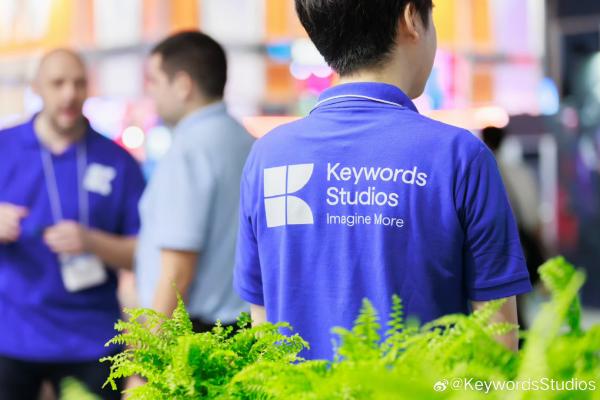
Keywords has contributed to titles like "Batman: Arkham Knight," "Mass Effect: Andromeda," "Halo 5," "Gears of War 4," and "Just Cause 3," among others. CEO Bertrand Boson revealed that Keywords participated in 13 of the 18 TGA award-winning games in 2023, accounting for over 70% of the winners.
According to financial reports, Keywords Studios generated €780 million in revenue in 2023, a 13% year-over-year increase. Since its IPO in 2013, the company has consistently grown its revenue by over 10% annually, with its P/E ratio soaring from tens to over a hundred in consecutive years.
Beyond international outsourcing giants, you also explore the status of domestic game outsourcing companies.
Domestic game outsourcing firms often rival tech giants like Microsoft and Sony in technical proficiency and often surpass their client companies in scale. For example, Virtuos, a Chinese company, assisted in the development of "Horizon Zero Dawn." While Guerrilla Games, the game's developer, has around 270 employees in Amsterdam, Virtuos employs 1,300 across 11 offices in eight countries.
Some outsourcing companies evolved from game developers into support teams. For instance, iQue, once a game console developer in China, became a wholly-owned subsidiary of Nintendo after its console failed, specializing in Chinese localization for Nintendo games.
While outsourcing entails working behind the scenes, it also has its perks.
Self-developing games carries risks of development and marketing setbacks, while outsourcing's primary risk lies in client acceptance. As a service provider, Virtuos serves 12 of the top 20 global game publishers, offering advanced art production and game development services. Its CEO has noted that outsourcing work often requires resilience to handle clients' sometimes blunt feedback.
Is it tough? Very. Despite working with renowned clients like Nintendo, Microsoft, Sony, EA, CAPCOM, and KONAMI, these companies often prefer not to disclose outsourcing partners as their brand recognition grows. Your contributions may go unacknowledged, making you a "ghost developer" in the industry.
No way, it's good to earn money.
Reference materials:
"Independent Game Development Manual" @ Wang Miaoyi Studio
"THE UNIVERSE HAS BEEN OUTSOURCED"
"Black Myth: Wukong: Abandonment, Decision and Future"



